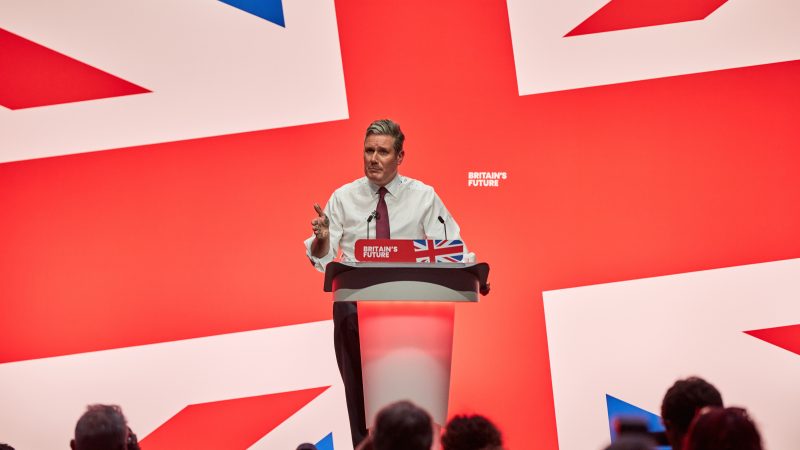
Think tanks are not political parties. Most of the time we examine policy problems one by one. It is not our job to construct comprehensive political programmes. But there are occasions when it is important to take a step back and put some of the jigsaw pieces together.
Now is one of those moments as the election draws into view. So today, the Fabian Society publishes a compilation of some of the most important ideas we have developed and championed in recent years. Plans for Power is a ‘mix tape’ of our best proposals – from early years to pensions and from the future of work to public service reform.
The policies presented are broad and diverse, but they are not comprehensive. You won’t find proposals on net zero or the EU relationship, vital as those issues are; like all think tanks, we need to pick and choose the topics we work on.
Here are 11 priorities for the next Labour government to consider if the party wins next year.
Act on early years inequality with a cross-government strategy to cut under-fives inequality; comprehensive local early years services; new health and development checks; and 30 hours a week of free childcare for all disadvantaged children aged nine months to five years.
A National Care Service for England based on a new partnership between national government, councils and care providers offering help to everyone who needs assistance, with fair funding, new rights and nationwide terms and conditions for care workers.
A UK living standards commission to advise the government on minimum income adequacy thresholds, poverty reduction targets and strategies for raising living standards, all informed by the perspectives of citizens.
British employment insurance, a new system of income protection, to be built over ten years, with time-limited benefits and statutory pay schemes that replace at least half of people’s usual earnings when they are sick, caring for babies, unemployed or carers.
Good pensions for all with higher minimum employer pension contributions; opt-out pension saving for all workers including the self-employed; and automatic conversion of pension savings into lifelong retirement incomes.
Homes people can afford with more than one-third of new homes to be affordable; capital grants to build 90,000 social homes per year; new communities on well-connected green belt; and councils purchasing private rented homes for social housing.
An agenda for workers and technology with an integrated adult skills system that has an offer for every business and worker; updated rights for technology-enabled work; expanded collective bargaining; and new partnerships between employers and worker representatives.
Economic devolution with every part of England able to take on the powers currently devolved to Greater Manchester and the West Midlands; nationwide bus franchising; fair financing for mayors; local revenue-raising measures; and beefed up financial accountability.
Stewarding the public finances with an Office for Value for Money; better capital expenditure decisions; improved spending reviews; place-based budgeting and audits; and long-termism in all spending decisions.
Public service reform with public services based on stronger public character and ethos; devolution of trust and power to places, institutions, frontline employees and citizens; and greater performance and value through data, peer-led improvement, early intervention and joined-up provision.
A review of taxation to examine loopholes and tax reliefs; consider whether there is a case to reform taxes on assets, businesses and non-employee income; debate earmarked health taxes; and start to explore long-term integration of social security and personal taxes.
Plans for power: Fabian ideas for transforming Britain by Andrew Harrop is published by the Fabian Society on Friday.




More from LabourList
Ex-Cooper aide: ‘Keir’s ground-breaking deal with France suggests his migration approach could be bearing fruit’
Labour to scrap first past the post for mayoral and PCC elections
New intake Labour MPs: ‘Why we set up the Living Standards Coalition’